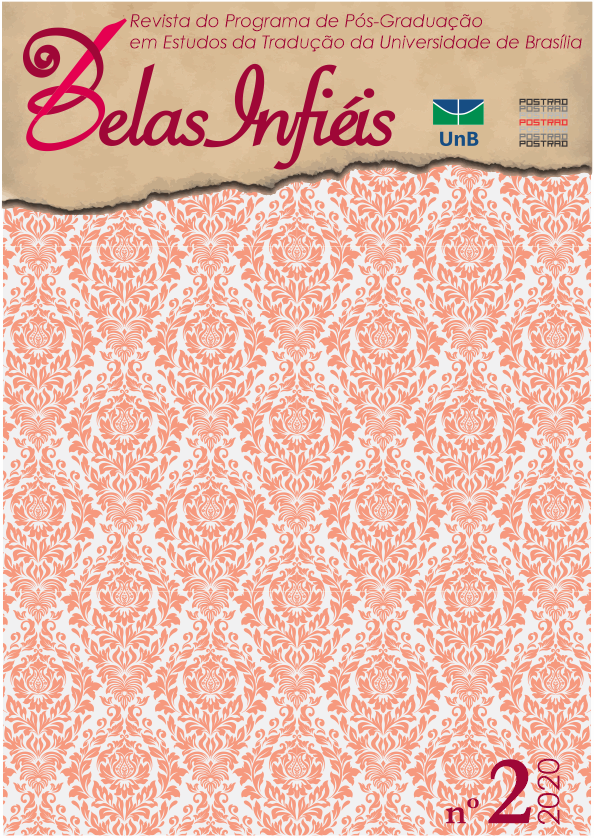Translation and commentary of an excerpt from the work Symposiaká / Quaestiones Convivales, by Plutarch: Question XV - Book IX
DOI:
https://doi.org/10.26512/belasinfieis.v9.n2.2020.27575Keywords:
Dance in antiquity. Pantomime. Plutarch. Symposiaka. Comparison between dance / poetry.Abstract
In this work is translated and commented an excerpt from the book Symposiaká from Plutarch, specifically question 15 of book 9 of the referred note. The text deals with three key concepts for dance theorization at this time, namely, levada (φοÏά-dance step), appearance (σχῆμα- choreographic disposition of the body) and indicative part (δεῖξις-pointing beings or objects on stage). The introduction discusses the scope of meanings of each of these terms, as well as Plutarch's analogy and comparison between dance and poetry. The text nevertheless evokes pantomime, although not nominally referenced; thus, it is one of the sources about this dramatic dance in antiquity. In translation, I seek to highlight the game sought between these concepts, which generates, on the one hand, a certain strangeness and, on the other, a greater effort of reflection and interpretation by the reader.
Downloads
References
GARELLI-FRANÇOIS, Marie-Hélène. “Le geste et la parole: mime et pantomime dans l´Empire romain”. IN: Máscaras, vozes e gestos: nos caminhos do teatro clássico. Ed. Maria Fernanda Brasete (Org.). Aveiro: Universidade de Aveiro, 2001, p. 285-303.
HALL, Edith. Os atores-cantores da Antiguidade. IN: Atores Gregos e Romanos. Aspectos de uma antiga profissão. Pat Easterling, Edith Hall (Orgs.). Traduzido por Paulo Fernado Tadeu Ferreira e Raul Fiker. São Paulo: Odysseus Editora, 2008.
HALL, Edith. WYLES, Rosie (Ed.). New Directions in Ancient Pantomime. Oxford, New York: Oxford University Press, 2008.
LAWLER, Lillian B.. Phora, Schêma, Deixis in the Greek Dance. TRANSACTIONS AND PROCEEDINGS OF THE AMERICAN PHILOLOGICAL ASSOCIATION, Vol. 85, 1954, p. 148-15. URL: https://www.jstor.org/stable/283472. Acessado em 30 de dezembro de 2018. ISSN: 1533-0699.
PÃNDARO. Píndaro: epinícios e fragmentos. Traduzido por Roosevelt Rocha. Curitiba: Kotter Editorial, 2018.
PLUTARCO. Plutarch’s Moralia IX (in fifteen volumes), 697c-771e. Eds. T. E. Page et alii. Cambridge, Massachusetts: Harvard University Press; London: Wiliam Heineman, 1961 ( LOEB Classical Library).
SILVA, Maria Aparecida de Oliveira. Práticas de Educação na Antiguidade: um Olhar sobre a Paideia de Plutarco. REVISTA TRAVESSIAS, v. 1, n. 1, 2011. ISSN: 1982-5935.
Downloads
Published
How to Cite
Issue
Section
License
Given the public access to this journal, the texts are free to use but requires the recognition of the original authorship and initial publication in this journal to be properly stated.
 The journal allows the use of works published for non-commercial purposes, including the right to submit the work to publicly accessible databases. Published contributions are the sole and exclusive responsibility of the author(s).Â



















